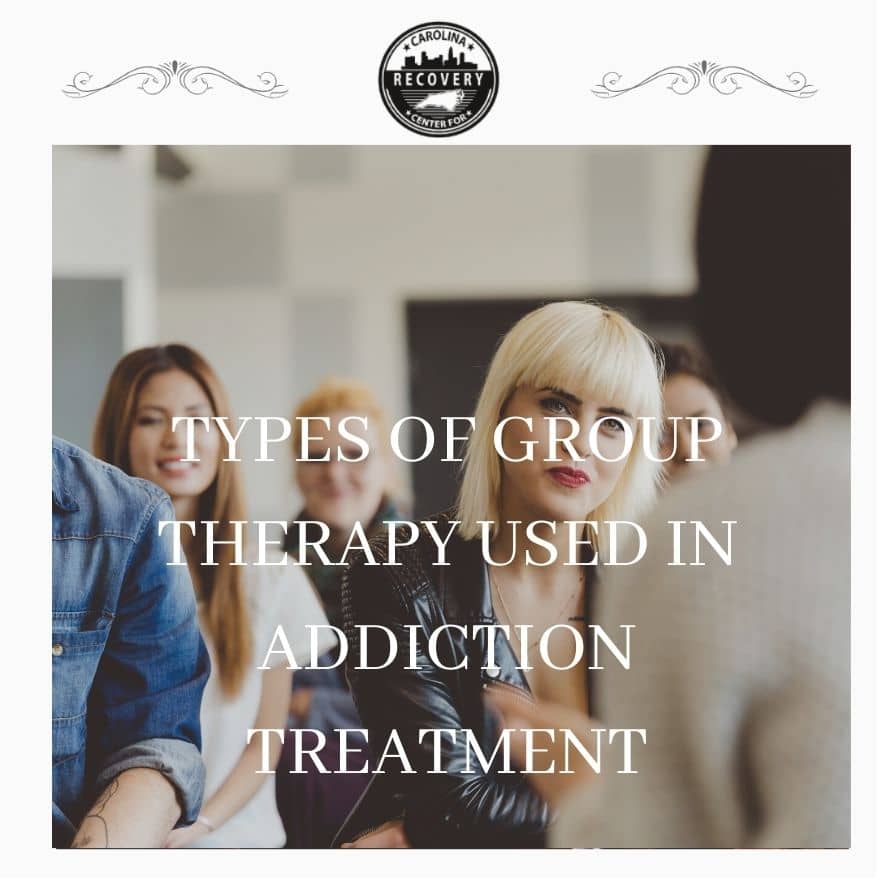What are the Different Types of Group Therapy Used in Addiction Treatment?

Medically Verified: 2/1/24
Medical Reviewer
Chief Editor

All of the information on this page has been reviewed and verified by a certified addiction professional.
Addiction is a complex condition that involves a person’s mind, body, behaviors, and community. No one chooses their addiction or its consequences. Addiction is a loss of control due to physical or emotional dependence that can severely harm a person’s mental and physical health and cause them to behave in ways they would never choose to.
People living with addiction need compassionate, comprehensive treatment that cares for every part of their lives. Comprehensive addiction treatment gives people the skills and support they need to overcome addiction and avoid relapse for the rest of their lives.
Many types of group therapy are included in comprehensive treatment plans because they provide many benefits to people in recovery. Learning more about group therapy can help you prepare for treatment or make better choices about your care.
What Types of Group Therapy are Used in Addiction Treatment?
Group therapy can occur in many settings both during and after addiction treatment. Group therapy is often part of treatment plans at all levels of care, including inpatient, outpatient, and partial hospitalization programs.
There are several types of group therapy used in addiction treatment programs. Here are some of the most common types.
Psychotherapy groups
Psychotherapy groups help people focus on the here and now rather than fixating on the past or future. Group members work with a licensed psychotherapist to process emotions and set goals that support their recovery. They are able to talk about progress and setbacks in a non-judgmental setting. Together, the group practices and receives empathy and support.
Cognitive therapy groups
Cognitive group therapy uses the fundamentals of cognitive-behavioral therapy (CBT) to support group members’ healing and recovery from addiction. A trained therapist works with the group members to identify patterns of behavior and thoughts that keep them “stuck”. People learn to control their thoughts, enabling them to make healthier decisions. Group members receive peer and professional support as they process their emotions and learn to change their behaviors.
Dynamic therapy
Dynamic therapy offers group members a safe, supportive environment in which they can examine the personal shortcomings that have contributed to their addiction. As a group, people identify common issues and work together to overcome the shame and isolation that prevents them from moving forward in recovery.
Mutual self-help
Mutual self-help is one of the most commonly used types of group therapy because it provides a safe, non-judgmental place for people to share and hear their peer’s stories and experiences. Group members are encouraged to be open and honest about their successes and setbacks and can give and receive encouragement and unconditional support.
Relapse prevention
For many, the early days of recovery feel fragile. Many experience cravings and other withdrawal symptoms that increase their risk of relapsing–returning to substance abuse after a period of abstinence. Relapse prevention therapy helps people identify their triggers and learn new methods of managing them. As a group, members work to refine their coping skills and create a non-judgmental, supportive environment that helps everyone stay committed to sobriety.
Network therapy
One of the essential aspects of all types of group therapy is creating or expanding people’s social networks. Network therapy uses some of the skills fundamental to cognitive-behavioral therapy to help people form new relationships and learn how to maintain sobriety.
All types of group therapy can benefit people in recovery. Learn more about the approach your program uses so you can confidently participate in this essential part of treatment.
What are the Benefits of Group Therapy in Addiction Treatment?
Recovery from addiction can sometimes feel lonely. People may feel isolated as they navigate the emotional, behavioral, and physical changes that can occur as they leave addiction behind. Support from a group of peers can help people feel less alone, more understood, and more confident in their ability to live a healthy, sober lifestyle.
Hearing other people’s stories and learning from their experiences is one of the most significant benefits of all types of group therapy. Other benefits of group therapy in addiction treatment include:
- Improved self-esteem and self–worth
- A new, supportive community of professionals and peers
- Better communication skills
- Developing the ability to give and receive feedback from others
- A safe place to process thoughts and feelings about recovery
- A non-judgmental environment
- A variety of different points of view and experiences
- More profound empathy toward others and self
- An opportunity to build trust with others
- New, healthy lifestyle changes and routines
- Learning how to better relate to others
Many people find group therapy a little awkward or uncomfortable in the beginning. It can be challenging to open up to a group of strangers. But as the benefits of group therapy begin to emerge and you develop relationships with your peers, you’re likely to understand why it is essential to your recovery journey.
Get Help Now
You don’t have to carry your addiction alone. Compassionate treatment is available. Contact the Carolina Center for Recovery specialists today to learn more about starting one of our comprehensive addiction treatment programs in North Carolina.

